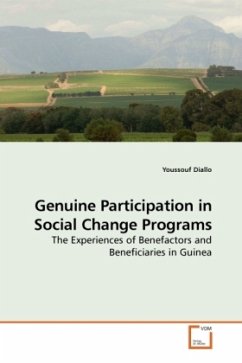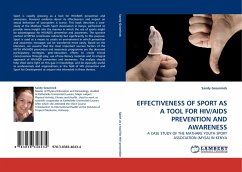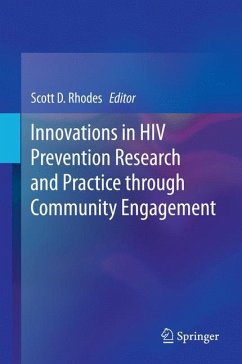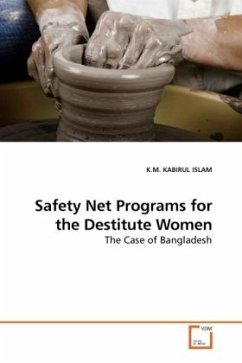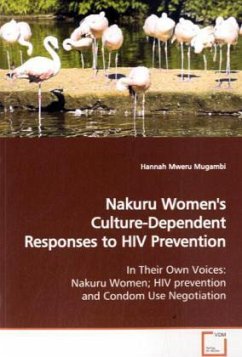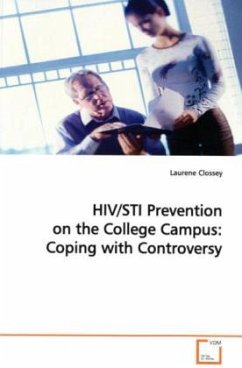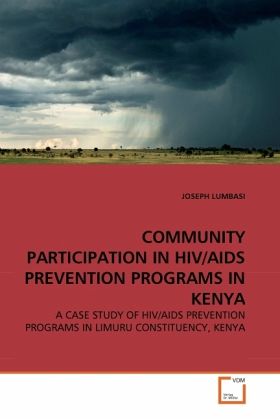
COMMUNITY PARTICIPATION IN HIV/AIDS PREVENTION PROGRAMS IN KENYA
A CASE STUDY OF HIV/AIDS PREVENTION PROGRAMS IN LIMURU CONSTITUENCY, KENYA
Versandkostenfrei!
Versandfertig in 6-10 Tagen
32,99 €
inkl. MwSt.

PAYBACK Punkte
16 °P sammeln!
Community participation through CBOs is increasingly being recognized as a possible strategy through which governments in the Sub Saharan Africa can address HIV/AIDS. This study attempts to determine whether community participation via formation of CBOs is an important factor in the decentralization of HIV/AIDS prevention programmes to constituencies in Kenya. The results show that homogeneous regions with a longer history of voluntary group formation are significantly represented in terms of funded CBOs; that the spatial distribution of funded CBOs is determined by factors such as community d...
Community participation through CBOs is increasingly being recognized as a possible strategy through which governments in the Sub Saharan Africa can address HIV/AIDS. This study attempts to determine whether community participation via formation of CBOs is an important factor in the decentralization of HIV/AIDS prevention programmes to constituencies in Kenya. The results show that homogeneous regions with a longer history of voluntary group formation are significantly represented in terms of funded CBOs; that the spatial distribution of funded CBOs is determined by factors such as community diversity, demographic characteristics, population density, literacy levels, and poverty differentials; that CBOs in the study area do not exhibit strong linkages with other organizations and that although CBOs in the study area engage in HIV/AIDS prevention activities, there is too much duplication of roles. This study suggests that if decentralization of HIV/AIDS prevention programme through community participation is to succeed, there is need to facilitate greater participation on the part of the marginalized and unrepresented regions.



